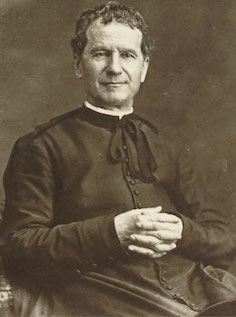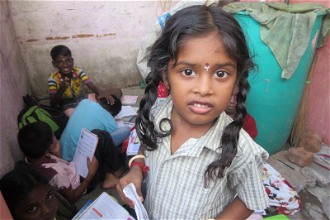Don Bosco and politics

Fr David OMalley writes in Salesian Schools.com: Don Bosco spent most of his life developing his work for youth in a feverish political atmosphere. He was involved in conversations between the Prime Minister Cavour of Piedmont and with Pope Pius IX. There were many extreme political parties forming many of them involved in violent campaigns and repression of specific groups. In 1864 there was a massacre of citizens in Piazza of San Carlo. Sixty two people were killed and 138 were injured.
Things were violent. It was a chaotic city. At one point the political climate led to a bitter focus on Don Bosco's own work in the poverty ridden streets of Turin. His reputation for strong social service of the poor saved him from arrest on many occasions.
Don Bosco believed that the purpose of politics is to keep order, calm and peace in society and he defined politics as the art and science of governing the State well. When challenged about which party he belonged to, Don Bosco often replied, "My politics is the Our Father." In the original rule for the Salesian order, written at the height of political chaos in Italy, Don Bosco asked his Salesians not to speak publicly on any topic that might be interpreted as favouring one party above another. That was an understandable response to a volatile situation where a mob response could have destroyed Don Bosco's fledgling work.
Today, as we turn to the prospect of an election here in the UK it, it would be good to consider that phrase of Don Bosco: "The politics of the Our Father" and how it might apply to us in the month ahead.
First let's look at two basic approaches of Don Bosco and apply them to politics:
Firstly, Don Bosco wanted to educate young people to be good Christians and honest citizens. He saw Gospel faith as supportive of good citizenship and leading ultimately to a calm, peaceful and compassionate society. He saw that Gospel values supported virtues in individuals who would then build a fairer and life-giving society.
Secondly, Don Bosco gave a simple formula to strengthen all personal and communal relationships by basing them on reason, religion and kindness. He hoped for a political system that respected the spiritual depth of people, argued on the basis of reason and not prejudice, and conducted itself in atmosphere of loving kindness.
Those two approaches, together with Don Bosco's phrase, "The politics of the Our Father" lead us straight into a more contemporary concept of 'The Common Good' which emerges from Catholic Social Teaching. One of the key scriptural quotes for the common good is spoken in God's own name by the prophet Jeremiah writing to an exiled nation in Babylon, a place where they felt oppressed and low in status. He says:
Seek the welfare of the city where I have sent you - pray to the Lord on its behalf, for in its welfare you will find your welfare.[2]
To read on see: www.salesianschools.com/post/don-bosco-at-the-ballot-box


















